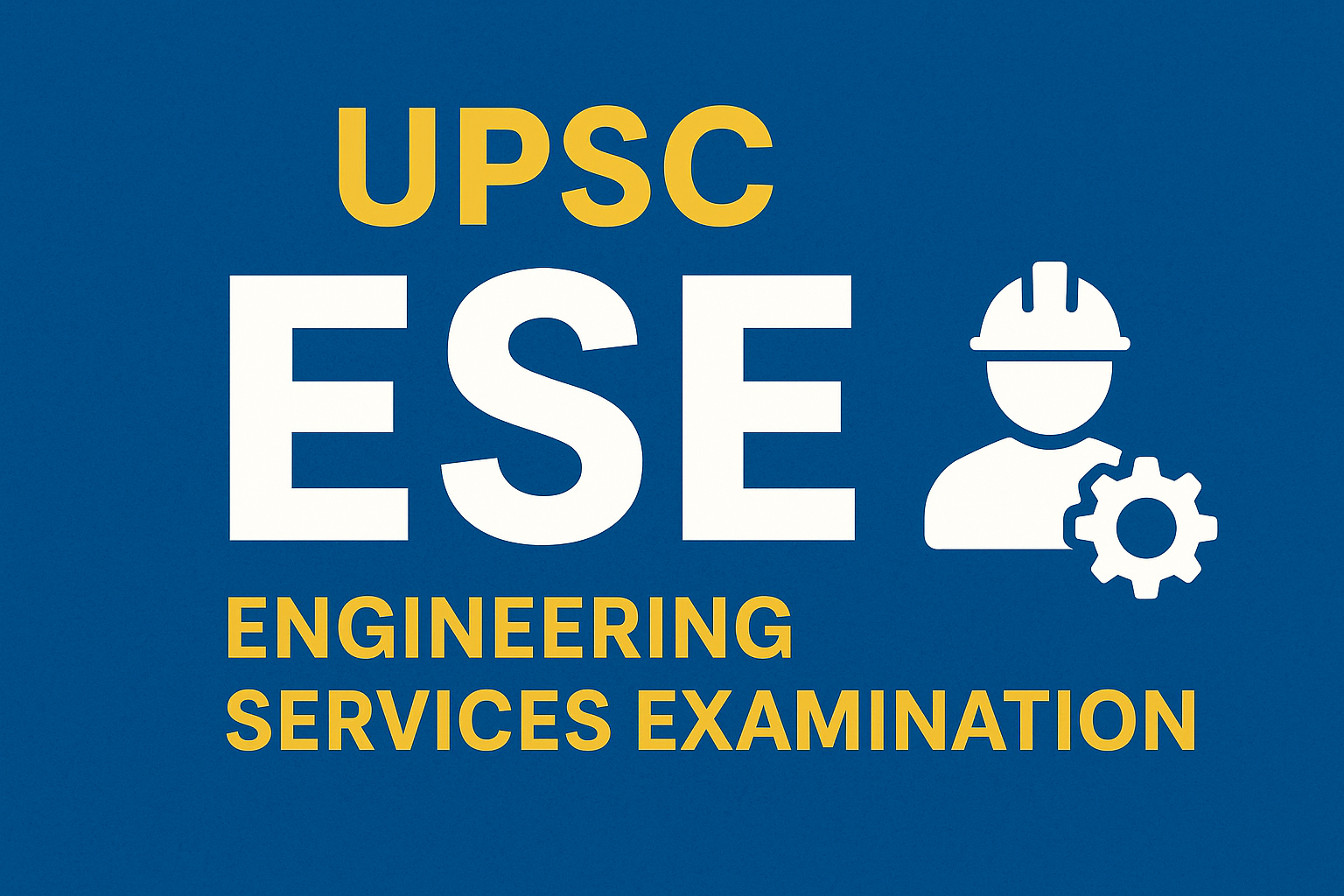The UPSC ESE, conducted by the Union Public Service Commission (UPSC), is a gateway for engineering graduates to secure prestigious roles in government sectors like railways, telecommunications, and public works. Also known as the Indian Engineering Services (IES) exam, it is highly competitive and demands a clear understanding of eligibility criteria. This SEO-optimized blog post provides a detailed overview of the UPSC ESE eligibility requirements to help aspirants prepare effectively.
What is the UPSC ESE?
The UPSC ESE is a national-level exam organized by UPSC to recruit engineers for various technical posts in government departments. Successful candidates serve in roles that involve infrastructure development, policy implementation, and technical administration. Knowing the eligibility criteria is essential before applying.
Eligibility Criteria for the UPSC ESE
To be eligible for the UPSC ESE, candidates must meet the following requirements:
1. UPSC ESE Nationality
- Candidates must be:
- A citizen of India, or
- A subject of Nepal or Bhutan, or
- A Tibetan refugee who settled in India before January 1, 1962, with the intention of permanent residence, or
- A person of Indian origin who migrated from Pakistan, Burma, Sri Lanka, or specified East African countries with the intent to settle permanently in India.
- Non-Indian citizens (except those in the above categories) must submit an eligibility certificate issued by the Government of India.
2. UPSC ESE Educational Qualification
- Candidates must possess one of the following:
- A Bachelor’s degree in Engineering (B.E./B.Tech) from a recognized university in disciplines like Civil, Mechanical, Electrical, or Electronics & Telecommunication Engineering.
- An equivalent degree, such as a Master’s degree in Engineering or a degree/diploma from a foreign university recognized by the Government of India.
- Passed Sections A and B of the Institution Examinations of the Institution of Engineers (India).
- Passed Graduate Membership Examination of the Institution of Electronics and Telecommunication Engineers (India).
- Passed Associate Membership Examination Parts II and III/Sections A and B of the Aeronautical Society of India.
- Candidates awaiting results for their qualifying degree can apply, provided they submit proof of passing before the final selection stage.
3. UPSC ESE Age Limit
- Minimum Age: 21 years as of January 1 of the exam year.
- Maximum Age: 30 years as of January 1 of the exam year.
- Age Relaxation:
- SC/ST: Up to 5 years.
- OBC: Up to 3 years.
- PwBD (Persons with Benchmark Disability): Up to 10 years.
- Ex-Servicemen: Up to 5 years.
- Domiciled in Jammu & Kashmir (1980–1989): Up to 5 years.
- Valid documentation is required to claim age relaxation.
4. UPSC ESE Number of Attempts
- There is no restriction on the number of attempts for the UPSC ESE, provided candidates meet the age and other eligibility criteria.
- Candidates can apply every year until they reach the maximum age limit for their category.
5. UPSC ESE Physical Standards
- Candidates must be physically fit as per the standards set by UPSC.
- Specific medical and physical tests are conducted, and candidates must meet these requirements to qualify for selection.
- Detailed physical standards are provided in the official UPSC ESE notification.
Additional Requirements
- The UPSC ESE consists of three stages: Preliminary Exam, Main Exam, and Personality Test (Interview).
- Candidates must clear the Preliminary Exam to qualify for the Main Exam.
- The exam tests technical knowledge in the candidate’s engineering discipline, along with general studies and aptitude.
How to Apply for the UPSC ESE Exam
- Applications are submitted online via the UPSC official website (upsconline.nic.in).
- Candidates must select their engineering discipline (Civil, Mechanical, Electrical, or Electronics & Telecommunication) during the application process.
- Ensure all eligibility criteria are met to avoid disqualification.
Tips for UPSC ESE Exam Preparation
- Know the Syllabus: Thoroughly understand the UPSC ESE syllabus for your engineering discipline and general studies.
- Study Technical Subjects: Focus on core engineering concepts and practice numerical problems.
- Solve Previous Papers: Analyze past UPSC ESE question papers to grasp the exam pattern and difficulty level.
- Time Management: Develop a study schedule to balance technical and non-technical subjects.
- Stay Updated: Keep track of current affairs, especially those related to engineering and technology.
Why Pursue a Career Through UPSC ESE?
A career through the UPSC ESE offers job security, prestige, and the opportunity to contribute to nation-building projects. UPSC ESE officers work on critical infrastructure, technological advancements, and public welfare initiatives, making it a fulfilling career choice for engineering graduates.

Hi, I’m Varun Pathak, the founder of TheSarkariNaukri.com—a dedicated platform for the latest updates on government jobs (Sarkari Naukri) in India. With years of experience curating reliable information on job vacancies, admit cards, exam results, and preparation strategies, I help thousands of aspirants navigate the competitive world of public sector opportunities. Passionate about job security, career growth, and empowering freshers for roles like IAS, IPS, and PSU positions, I update the site regularly with actionable insights for 2025 and beyond. Let’s connect to turn your career dreams into reality!
